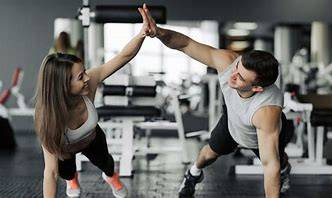In the realm of sports and athletics, the pursuit of peak performance is an ongoing endeavor. Athletes continuously seek innovative methods to enhance their strength, agility, and overall athleticism. One such method gaining significant attention is functional fitness. Unlike traditional strength training that often isolates muscles, functional fitness emphasizes movements that mimic real-life activities, making it particularly relevant for athletes looking to improve performance across various sports disciplines.
Understanding Functional Fitness
Functional fitness revolves around the principle of improving movement patterns and enhancing the body's ability to perform daily tasks efficiently. Rather than focusing solely on muscle size or isolated strength gains, this approach emphasizes exercises that engage multiple muscle groups simultaneously. By integrating movements that replicate the demands of specific sports or activities, functional fitness helps athletes develop functional strength, mobility, stability, and coordination—all crucial components for success on the field, court, or track.
Key Components of Functional Fitness for Athletes
1. Movement Patterns: Functional fitness prioritizes compound movements that involve multiple
joints and muscle groups working together. Exercises such as squats, lunges, deadlifts, and overhead presses mimic the natural movements required in many athletic endeavors, promoting functional strength and coordination.
2. Core Stability: A strong and stable core is essential for athletic performance as it serves as the
foundation for nearly every movement. Functional exercises like planks, stability ball exercises, and rotational movements help strengthen the core muscles while improving balance and posture.
3. Balance and Coordination: Athletic activities often demand precise control of body movements
and balance. Functional exercises incorporating balance boards, stability balls, and single-leg movements help athletes enhance proprioception and coordination, reducing the risk of injury and improving overall performance.
4. Flexibility and Mobility: Optimal joint mobility and flexibility are critical for athletes to achieve full
range of motion and prevent injuries. Incorporating dynamic stretching, yoga, and mobility exercises into functional fitness routines can help athletes improve flexibility while maintaining functional movement patterns.
Benefits of Functional Fitness for Athletes
1. Sport-Specific Training: Functional fitness allows athletes to tailor their training to the specific demands of their sport, whether it involves explosive movements, agility, or endurance.
2. Injury Prevention: By addressing movement imbalances and enhancing joint stability, functional fitness helps athletes mitigate the risk of common sports-related injuries.
3. Improved Performance: The functional strength, agility, and coordination gained through targeted training can directly translate to enhanced performance on the field, court, or track.
4. Enhanced Functional Capacity: Beyond athletic performance, functional fitness contributes to overall functional capacity, enabling athletes to excel in everyday activities and maintain long-term physical health.
Incorporating Functional Fitness into Training Regimens:
To reap the benefits of functional fitness, athletes should integrate specific exercises and training techniques into their existing routines. Working with qualified coaches or trainers who specialize in functional training can provide tailored guidance and programming to address individual needs and goals. Additionally, incorporating functional movements as part of warm-up routines or cool-down sessions can help reinforce proper movement patterns and enhance overall athletic performance over time.
Functional fitness offers athletes a holistic approach to training that goes beyond traditional strength and conditioning methods. By emphasizing movement quality, core stability, balance, and flexibility, functional fitness equips athletes with the physical capabilities necessary to excel in their respective sports while reducing the risk of injury. As athletes continue to seek ways to optimize their performance, integrating functional fitness principles into training regimens holds significant promise for unlocking their full athletic potential.




No comments yet
Be the first to share your thoughts!